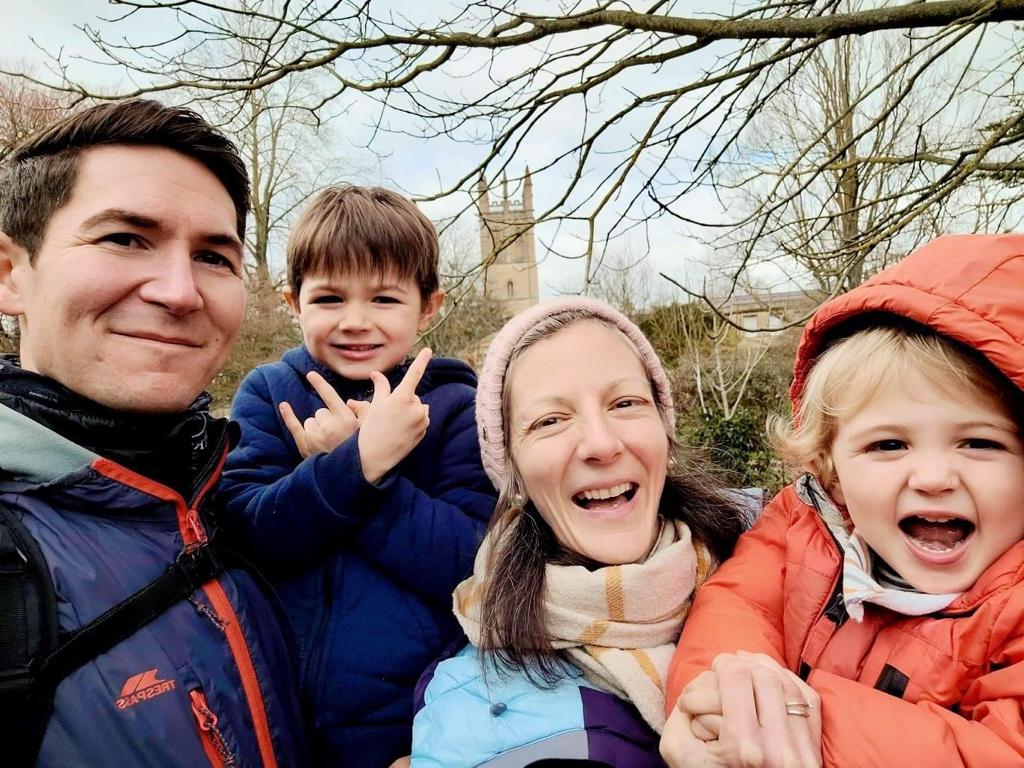
My 2.5-year journey with translocation renal cell carcinoma
April 30, 2024
This is a guest post by Dawn Dyson, 37, who was diagnosed with translocation renal cell carcinoma in 2022. Dawn…
Read More
This is a guest post by D’Ann George, PhD, Medical Writer.
Some kidney cancers are so rare that clinicians don’t know enough about them to determine what treatments should be standard, or even to predict how the disease will behave over time. Among these rare renal cell carcinoma (RCC) types are papillary, chromophobe, sarcomatoid, and hereditary leiomyomatosis and renal cell cancer (HLRCC), renal medullary cancer (RMC), and other variants.

Yet today, more oncologists are recognizing rare tumors early on, said Dr. Ramaprasad Srinivasan, a medical oncologist at the National Cancer Institute (NCI) who specializes in rare RCCs.
At the NCI, in Bethesda, Maryland, the mission is to study and treat these rare cancer types as well as more common cancers that prove refractory, or resistant, to standard therapies. The definition of standard therapy has expanded in recent years and may include treatment with a combination of immunotherapy to boost the body’s immune response against cancer cells plus a tyrosine kinase inhibitor, which prevents cell growth.
Many clinical trials and clinicians at the NCI specialize in rare and/or refractory tumors, said Dr. Andrea Apolo, a medical oncologist and kidney cancer expert at the NCI who both conducts research and sees patients.

“We offer treatment beyond the standard of care, focusing on new treatment approaches and combination strategies” she said.
More opportunities to observe and treat rare tumors has helped researchers at the NCI to recognize and document their unique characteristics, features that may hold the key to more effective treatments.
Increasing Progress on Rare Tumors
As recently as the early 2000s, researchers faced an uphill battle to make progress against rare tumors.
When Srinivasan first began treating people with HLRCC, he noticed that the targeted therapy drug bevacizumab (Avastin) in combination with the tyrosine kinase inhibitor erlotinib was effective against this tumor type, even though the combination had not been as effective at treating more common kidney cancer types.
But convincing drug companies to sponsor a trial was difficult.
“It was around 2005-2006, I was treating a handful of patients. At this time people kept saying, ‘HLRCC is a very rare disease. We don’t see them. We don’t know what that is. We don’t have time to waste on rare diseases.’
“And then I tried to get a clinical trial started with the combination of bevacizumab and erlotinib, I went to everyone with access to these drugs. They all turned me down. They said, it doesn’t work in kidney cancer,” said Srinivasan.
But Srinivasan persisted, believing HLRCC to be a different kind of cancer that might respond differently to the drugs. And he did find evidence that the bevacizumab plus erlotinib combination had unprecedented activity in HLRCC patients – an overall response rate of 72%. Eventually, he was able to find drug companies willing to partner with him to conduct trials for HLRCC and other rare tumors once thought untreatable. But he kept the rejection letter, arguing that bevacizumab and erlotinib would not work in HLRCC, tucked away in a desk drawer.
“It reminds me that this journey was not going to be an easy one,” he said. “And sure enough, the story has repeated itself several times, but this experience keeps me and my team motivated, knowing we can succeed with persistence.”
Current Clinical Trials for Rare RCC Tumors
Today, there are a growing number of open and soon-to-be-open clinical trials specifically targeted towards rare tumors. Srinivasan is the primary investigator for two of these.
One of these targets HLRCC as well as other forms of papillary RCC. The study takes a combination that already works very well in these patients (bevacizumab plus erlotinib) and adds an immunotherapy drug (atezolizumab) to ask if the three drugs together can do better.
Srinivasan is also the principal investigator for a newly opened trial that will test two agents that are new to kidney cancer: palbociclib and sasanlimab. This trial is open to patients with clear cell RCC as well as those with papillary forms of kidney cancer.
Palbociclib, an oral medication, works to inhibit cyclin-dependent kinases, a different cell growth pathway than previous treatments for kidney cancer. Some evidence suggests that this drug might enhance existing standard-of-care immunotherapies.
Sasanlimab works on similar pathways to existing immunotherapies but is delivered by an injection rather than intravenous drip.
When asked which rare-tumor clinical trial that she is most excited about, Apolo ticks off a few of the rare types of RCCs targeted by the ongoing ICONIC trial, a multi-center, collaborative study for which she serves as the principal investigator. These types include medullary renal carcinoma, collecting duct carcinoma, chromophobe carcinoma, sarcomatoid, and papillary.
Apolo and her research collaborators are looking to see if they can get similar results to the Checkmate 9ER and 313 study, which treated people living with more common RCC tumors with a combination of drugs: two immunotherapy drugs, nivolumab and ipilimumab, paired with the multi-targeted tyrosine kinase inhibitor cabozantinib.
“Based on the phase one data of cabozantinib plus nivolumab with or without ipilimumab we conducted, I worked to help develop the Checkmate 9ER study in clear cell RCC, where we saw amazing efficacy for the combination of cabozantinib plus nivolumab. I developed the ICONIC study to test this combination with cabozantinib plus nivolumab/ipilimumab in patients with rare genitourinary tumors, including rare kidney cancers. And one of the ones that we’re interested in is collecting duct and medullary renal carcinoma . . . to see if there’s an effect,” said Apolo.
Another one of Apolo’s current clinical trials offers people with rare tumors the opportunity to participate in a natural history study. As participants, they will get advice on how to manage and treat their cancer for as long as they want it, even if they prefer to be managed in their home location by their current physician.
In return, researchers will learn as much as they can about these rare diseases through studying participants’ tissue biopsies, medical images, patient-reported outcomes, family histories, and general disease progression.
All of this information, said Apolo, will help researchers design better clinical trials for rare cancers and ultimately define better treatments for them in the future.
1 thought on “Rare & Refractory Kidney Cancer Tumors: NCI Targets Both”
I have kidney cancer 2022 i had part of my kidney taken and tumor removed. Its been two years and now they see something else on same kidney.